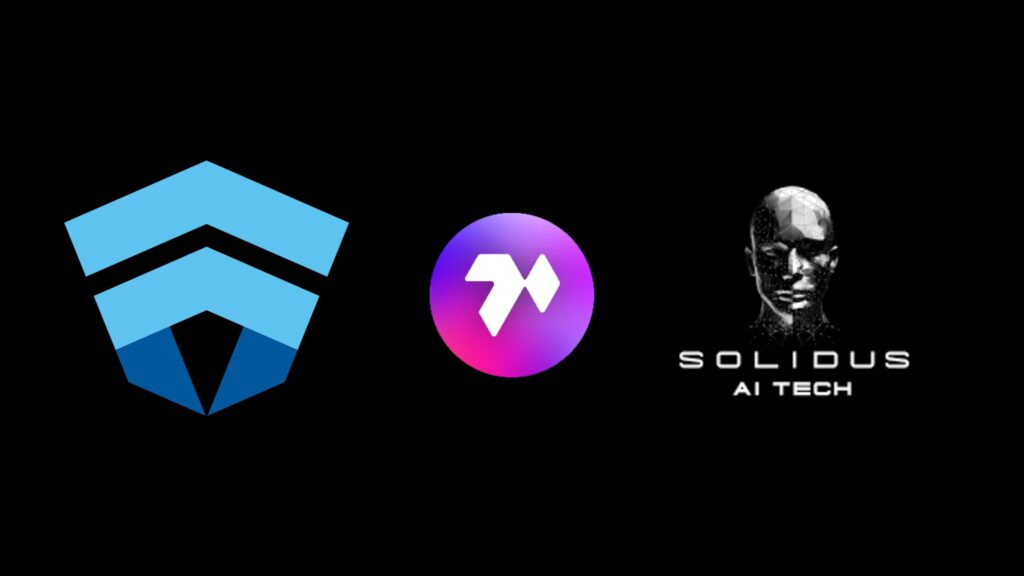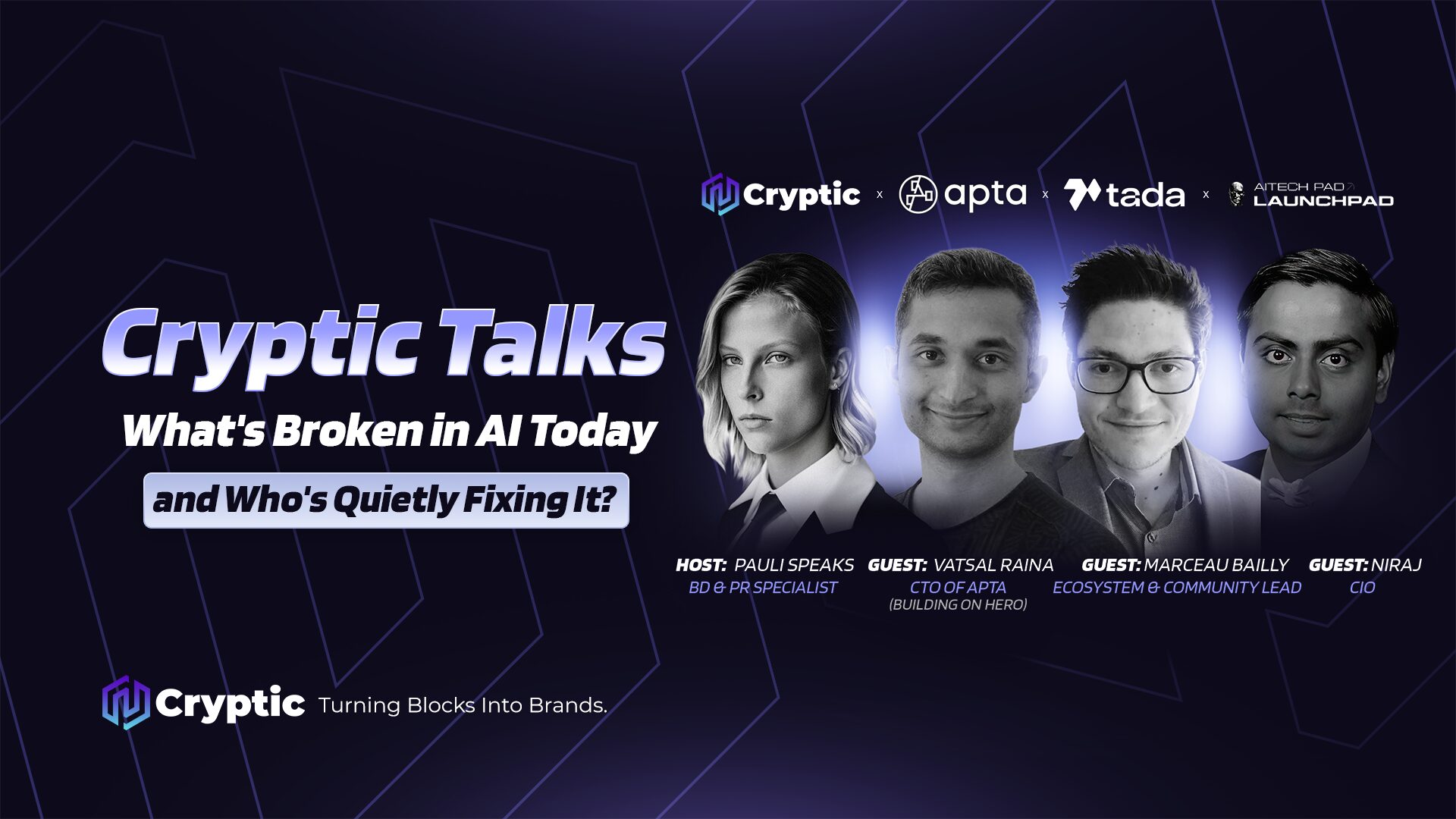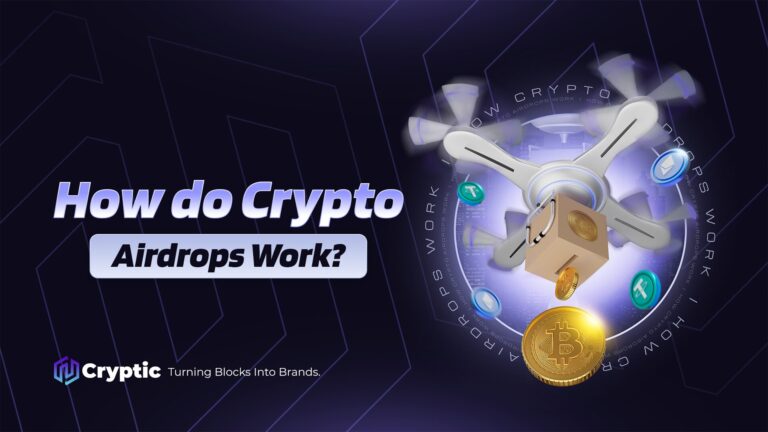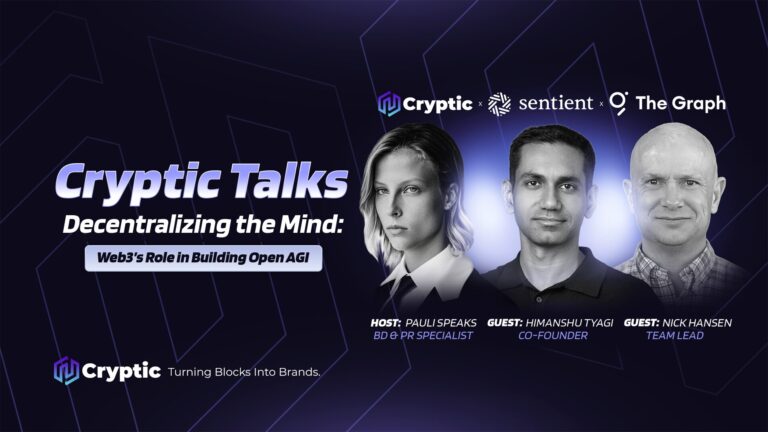What happens when artificial intelligence meets crypto, away from speculation and closer to real utility? Three names shaping this intersection offer concrete answers: Vatsal Raina, who develops on-chain inference models with Hero and leads Apta AI, a project focused on decentralized access to high-performance computing; Marceau Bailly, founder of Ta-da, a platform turning data collection into a game powered by human curation and crypto incentives; and Niraj Poduval, from AITECH, who is building a platform that streamlines AI integration, connecting developers to models, infrastructure, and marketplaces in just a few clicks. Together, they show how AI, blockchain, and clear intent can reshape the way we build and collaborate online.

AI with purpose and real-world application
Vatsal Raina leads projects that bring artificial intelligence closer to practical, high-impact contexts. At the helm of Apta AI and Hero, he focuses on copilots designed for the DeFi space and applied science. The goal is clear: to create tools that help researchers and users navigate complex data with more autonomy, clarity, and efficiency.
Marceau Bailly, from Ta-da, is rethinking how data is collected and rewarded. His platform introduces a new logic of participation, where those who contribute data are directly compensated. The result is a structure that values information quality and creates more balanced relationships between individuals, systems, and developers.
Niraj Poduval, from AITECH, advocates for fair access to computing infrastructure. Instead of concentrating power in a few central hubs, his proposal distributes processing capacity more widely and accessibly. By decentralizing this access, he paves the way for a more inclusive ecosystem where more voices can innovate and contribute to the progress of artificial intelligence.
These three figures not only lead innovative projects but also embody the tangible evolution of AI toward practical use. With experience across decentralized finance, data science, tech infrastructure, and the information economy, they offer an integrated perspective on how AI can become transformative when tied to real-world challenges. Their solutions stem from technical demands but respond to human needs, making them key voices in understanding not just where technology is headed but why it matters.
The foundations behind the new artificial intelligence
Apta AI and Hero, led by Vatsal Raina, connect artificial intelligence to the fields of applied science and decentralized finance. While Apta AI focuses on models designed to tackle highly complex problems, Hero develops copilots tailored for the DeFi space. Both initiatives share the goal of making AI more accessible and practical in contexts that demand precision, autonomy, and real impact.
Meanwhile, Ta-da and AITECH, represented by Marceau Bailly and Niraj Poduval, work on core elements of the AI ecosystem: data and infrastructure. Ta-da introduces a new way to fairly reward data contributors, creating a more transparent and balanced participation model. AITECH decentralizes access to high-performance computing, enabling more people to develop and scale their solutions. Together, they highlight the foundational layers of AI progress and how these can be distributed more equitably.
The invisible challenges shaping today’s AI
The rapid evolution of artificial intelligence is not without its bottlenecks. One of the most pressing is the shortage of GPUs, which has made access to high-performance computing both scarce and expensive. Vatsal Raina highlights how this scarcity disproportionately benefits large corporations that can outbid smaller players, effectively centralizing innovation in a few hands. As AI models grow in size and complexity, this imbalance risks excluding a broader range of developers and researchers from participating in meaningful technological progress.
Marceau Bailly adds that this concentration of computing power also shapes which ideas get developed and funded. Smaller, innovative teams often face insurmountable technical and financial barriers, even when they are working on high-potential or socially relevant applications. The current landscape, he argues, discourages diversity of thought and experimentation by rewarding scale over creativity. This creates a cycle in which access defines influence, not necessarily insight or originality.
To address this imbalance, Niraj Poduval advocates for decentralized infrastructure as a structural solution. He envisions a future where computing resources are more evenly distributed across networks, lowering the entry barrier for new AI projects. Decentralization, in this view, is not just a technical choice but a philosophical one: it challenges the dominance of a few centralized entities and opens space for a more democratic and inclusive AI ecosystem.
Quiet solutions reshaping AI from science to crypto
Behind the scenes of the AI race, a quieter revolution is unfolding. It is rooted in scientific rigor and fueled by the ethos of decentralization. At the core of this movement are models inspired by scientific principles, designed to mimic natural processes rather than simply scale brute-force computation. Apta AI reflects this approach through AI systems that draw from the complexity and precision of life sciences. Tools like Chatoshi expand this vision, acting as natural language copilots that bring advanced crypto analysis to a broader audience. Ta-da introduces a new incentive model by directly rewarding contributors for high-quality data, reshaping the economics of AI training. AITECH, in turn, is building a distributed infrastructure that decentralizes not only computing power but also the future of innovation itself. These are functional, real-world responses redefining how intelligence is created and shared.
What we learn from those building the future
Amid the noise surrounding artificial intelligence, the most valuable insights often come from those working quietly and consistently on real solutions. Across all conversations, a recurring theme emerged: AI should be a tool for contribution, not just consumption. Whether it’s enabling fair access to computing, reshaping how data is valued, or translating complex crypto systems into intuitive language, each guest emphasized the importance of using AI to empower rather than overwhelm.
True innovation is happening off the main stage. In spaces where experimentation, humility and long-term vision take priority over hype. That is the spirit behind Cryptic, spotlighting the builders who are not just imagining the future but actively shaping it. Keep exploring, keep listening and get to know the projects behind this movement: Hero, Apta AI, Ta-da and AITECH.
Disclaimer: This article is based on an interview and reflects the personal views and opinions of the featured speaker. It is intended for informational purposes only and should not be considered financial, investment, or legal advice. Readers are encouraged to conduct their own research and consult with qualified professionals before making any financial decisions.



